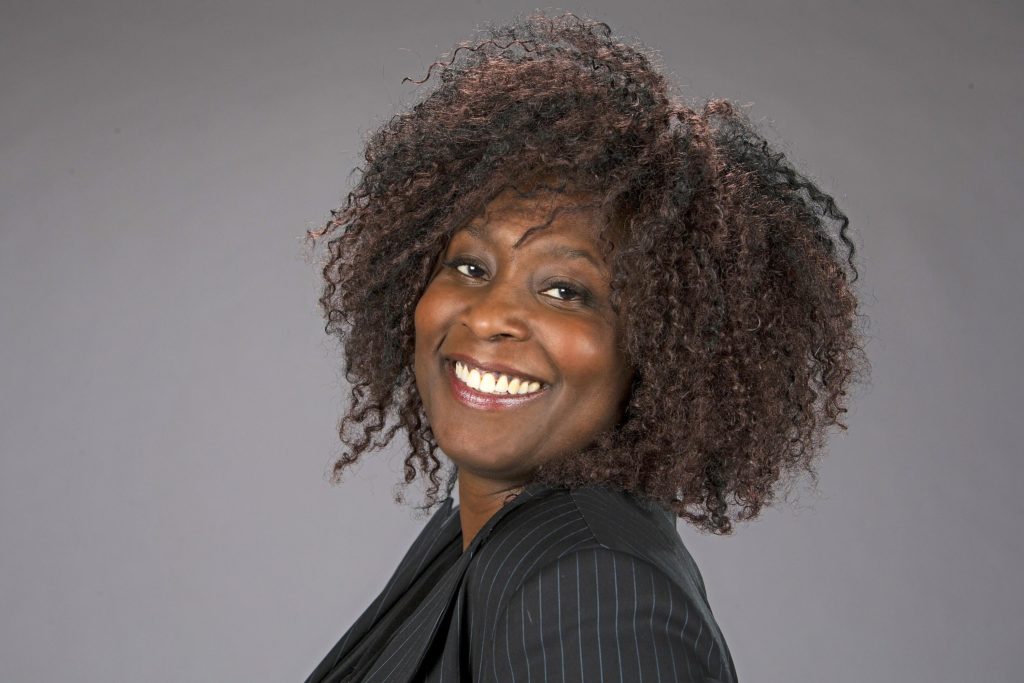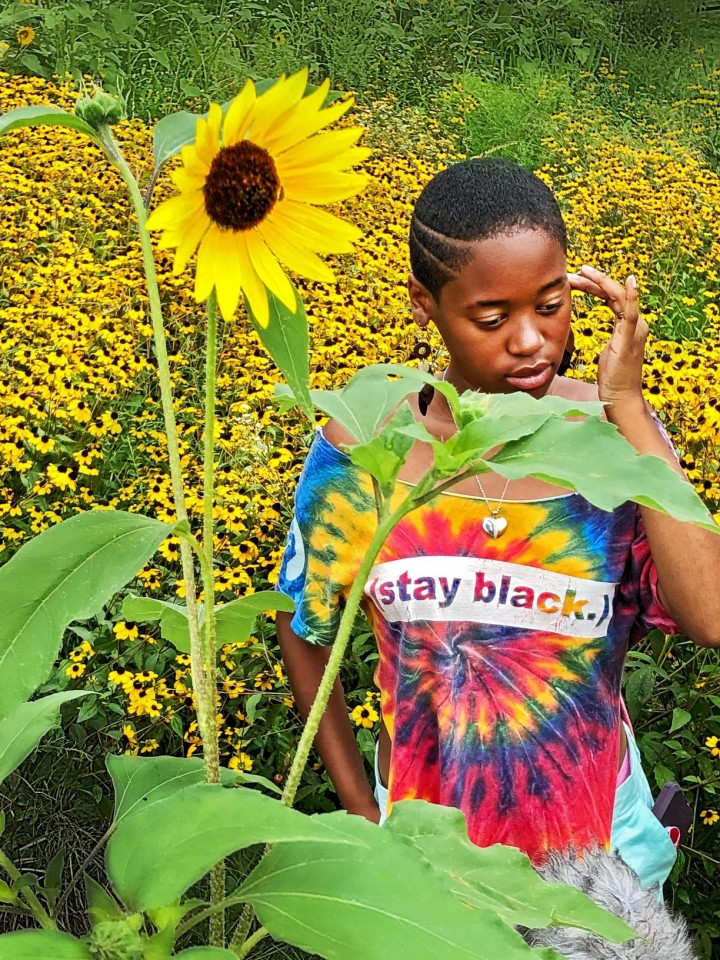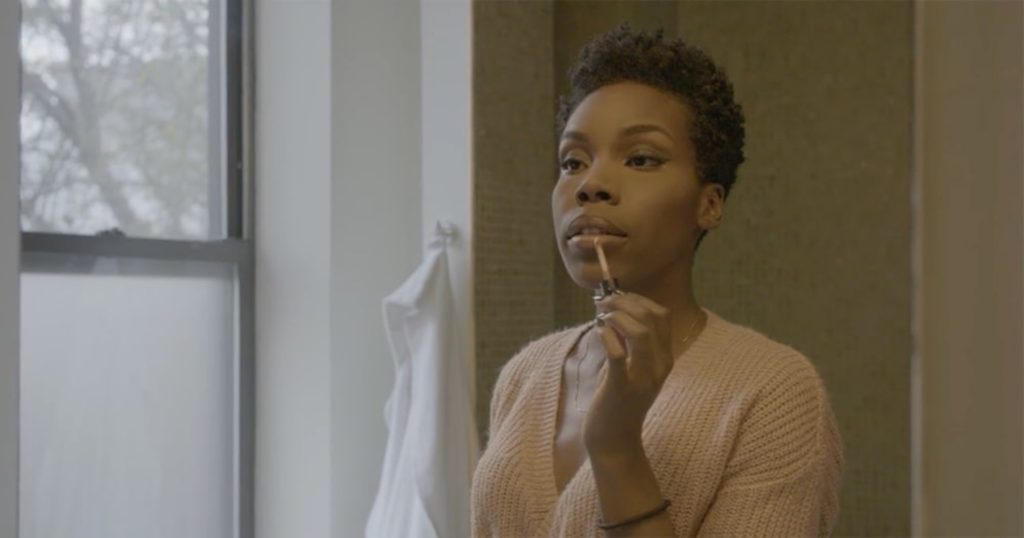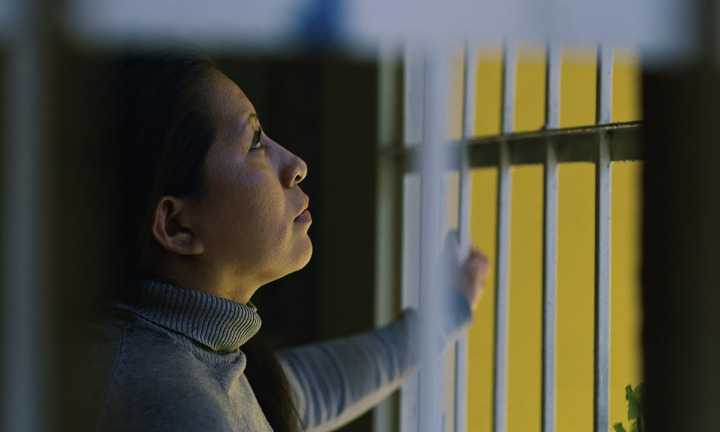Jennifer Holness is a joyful woman. Even speaking about colourism, media industry difficulties, and the realities of raising Black daughters in a white supremacist world, she always finds the joy in life, and the beauty in Blackness. Making her latest feature documentary Subjects of Desire was a natural extension of how she raised her own daughters to be consciously loving of the brown skin they were born in, despite the influence of the world around them. “It was very important to me to get the film right,” she says in an interview prior to the Canadian launch of the film at Hot Docs. “To give the young people a voice, but also to raise my children where they were able to just glory in their Blackness.”

This intention permeates throughout Subjects of Desire, Holness’s return to directing after two decades. The film was produced by Hungry Eyes Media, the company she runs with her husband and creative partner, the director and screenwriter Sudz Sutherland.
One of Canada’s most celebrated producers and writers, Holness, alongside Sutherland, has been a staple of the Canadian film and television industry since their co-directing debut documentary, 2000’s Speakers for the Dead. Since then, they have tackled pressing social issues like immigration, politics, and gun violence as well as Black representation through documentary and narrative fiction, with Holness racking up producer and screenwriter credits and accolades alongside director-writer Sutherland.
Recently, she received the 2020 CMPA’s IndieScreen Established Producer Award for her contribution to Canada’s film industry and incredible career achievements, which include Home Again (2012), Badge of Pride (2010), and Love, Sex and Eating the Bones (2003). Holness also produced the 2020 feature documentary Stateless, about the 200,000 Dominicans stripped of citizenship because of their parents’ Haitian heritage, which won the Special Jury Prize for Canadian Feature at last year’s Hot Docs.
Subjects of Desire, a compelling treatise on the gradual shifts in global beauty standards as they relate to Black women and Black beauty, is framed around the 2019 Miss Black America beauty pageant—created in 1968 in direct response to the racist standards of the Miss America pageant, which for several decades only accepted white contestants.
 From that jumping off point, Holness offers a broadly comprehensive look at the tangible, real-world effects of white beauty standards on Black women’s lives, and situates Black beauty ideals in the history of media, cinema, art, politics, legal rulings, and cultural currency.
From that jumping off point, Holness offers a broadly comprehensive look at the tangible, real-world effects of white beauty standards on Black women’s lives, and situates Black beauty ideals in the history of media, cinema, art, politics, legal rulings, and cultural currency.
She realized that “the Miss Black America Pageant was a political act. It was like fists up, like the Afro, like the Black Panthers. It was a political movement to say Black women are beautiful and should be treated in a way that was reflective of how white beauty was respected. And what people forget was in the ’50s, ’60s, and ’70s, pageants were the thing. We watched boxing, and we watched the Miss America pageant. Now it’s changed, but imagine growing up in that time and not ever being a part of that paradigm.”
The film reveals poignancy, vulnerability, and resilience in its subjects, particularly when the young pageant contestants detail harsh experiences that came as a direct result of how the world disregards Black women. But there is also a streak of pride that runs through the film: pride in Black hair in all its variations, Black skin in all its shades, and Black joy: a key scene shows the contestants breaking into an impromptu shared song and gleefully dancing together while waiting in the conference halls between pageant activities.
For Holness, making this film was as much a personal love letter to her Black daughters and to all Black women, as it was a historical, cultural unpacking of how this society treats Black beauty and Black women.
“When I conceived of the film, I really wanted to find a way to express what Black women had gone through and had been going through and what Black women face,” she says.
Early on, the film excerpts Malcolm X’s famous 1962 speech in which he declares, “The most disrespected person in America is the Black woman. The most unprotected person in America is the Black woman. The most neglected person in America is the Black woman.”
This quote sets the tone for the film’s exploration as to why exactly that is. In the answer, Holness goes all the way back to the history of slavery and the Reconstruction era, and the calculated narratives about Blackness spun by the south to both justify and excuse the brutality of slavery and its lingering effects resonating almost two centuries later.
The film draws clips from popular and classic films in over a century of cinematic history, snippets of TV interviews and commentary going back decades, and images of editorial cartoons denigrating Black women, all to paint a picture of a web of content woven throughout society that all repeat the same thing: Black is not to be desired.
How ironic then, that current global beauty ideals have taken the stereotypically Black features that for so long were presented as undesirable and fully embraced them, often to the point of being deemed cultural appropriation.

But to Holness, it makes sense that as the world works to disparage Blackness as it exists on Black people with one hand, with the other hand it snatches up all indications of Blackness and places it on bodies that considerably fit the European fairness ideal, while embodying a very uniquely Black body ideal.
“I believe that Blackness is glorious. And look at the Kardashians, they think Blackness is glorious too, know what I’m saying?” she says with a laugh.
“Look at all those people—taking our music, taking our shade, taking our booties, taking our figure with their waist-trainers and all these things that essentially replicate a fit Black woman’s body.”
In documentary, people talk a lot about access, and they think about getting subjects that embody what they’re trying to say. One of the film’s standout characters in this regard is Rachel Dolezal, whose appearance elicited an actual gasp upon first viewing. Everyone who has been on the internet in the last half decade knows who Rachel Dolezal is, and what she is famous—or infamous for.
But Holness had a good reason for including a white woman, who was publicly ostracized for pretending to be Black for over a decade, in a documentary about Black beauty standards.
“If you look at the film, you’ll see what the film is, it’s about Black women and beauty, and the fact that Black women have historically been compared to white women and then perceived as lacking,” she says.
“And so to me, I felt like I couldn’t have a genuine conversation about Black women in beauty, and not look at both how Black women have been juxtaposed against white women, and also to be honest, have also had white women not be allies in the struggle around Black women’s intersectionality, for example. So Rachel to me is a bit of that counterbalance, because to me, Rachel Dolezal was the first time a white woman legitimately said I am going to live the life of a Black woman, for all that entails.”
The past year has seen a definite uptick in awareness of, and public addressing of the anti-Blackness in society that her film addresses.
Holness notes that all the work she and others have been doing to create opportunities for Black and people of colour in the creative screen industry seems to be gaining some momentum in the wake of last summer’s protests—including the creation of and support for the new Black Screen Office, of which Holness is a founding member. But hers is a cautious optimism.
“The only thing that’s happening right now is that racism is being called out and we’re really discovering who the real allies are and who aren’t,” she says.
Subjects of Desire premieres at Hot Docs 2021 with a Scotiabank Big Ideas screening on May 6. Jennifer Holness appears in a Hot Docs Industry master class on May 3.











